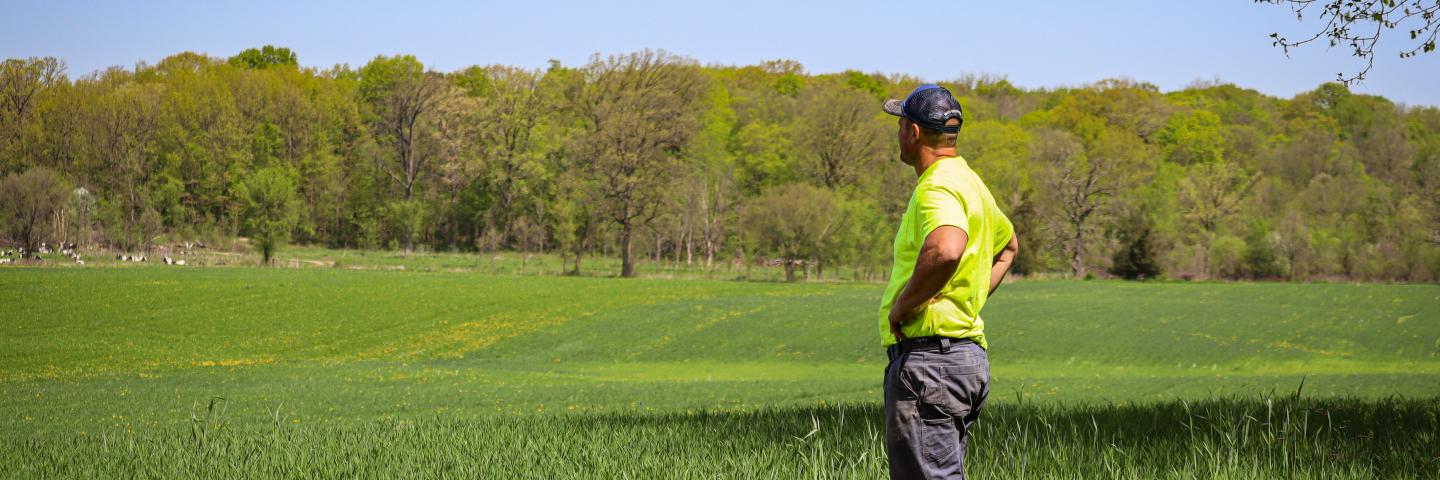
Wisconsin conservation partners celebrate a groundbreaking easement closing through the Regional Conservation Partnership Program.
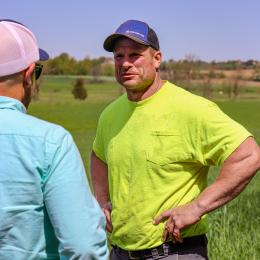
Because of the easement program, we were able to purchase local farmland at affordable prices, while protecting the farming nature of the community,
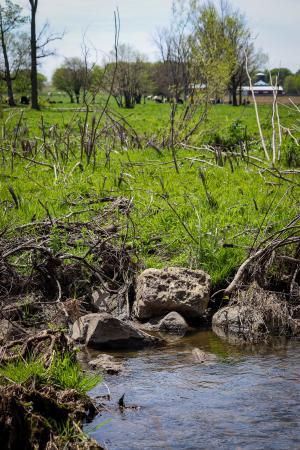
The U.S. Department of Agriculture (USDA) Natural Resources Conservation Service (NRCS) in Wisconsin announced the closing of four agricultural land easements through the Regional Conservation Partnership Program (RCPP). The purpose of easements is to permanently protect farmland for future generations, protect prime and unique soils that make up Wisconsin’s most productive farmland, and preserve natural areas consisting of wetlands, floodplains, and hydric soils for floodwater management and weather resiliency. The four easements were voluntarily enrolled by private landowners and add another 361 acres of preserved farmland in the Milwaukee River Watershed. It took a strong partnership of farmers, county Land and Water Departments, land trusts, Milwaukee Metropolitan Sewerage District (MMSD), and NRCS to make these easements possible.
Several key stakeholders involved in this partnership visited the Lettow family dairy farm in the rolling hills of Kewaskum, Wisconsin to celebrate the easement closing and acknowledge the work and effort put into the multi-agency collaboration. The 64-acre easement, owned by David and Heather Lettow, contains prime and unique farmland soils, maple-beech woodland, wooded wetland, and a meandering section of Kewaskum Creek. Kewaskum Creek is a tributary of the Milwaukee River, which drains into Lake Michigan. The easement is adjacent to two other agricultural land easements, creating a corridor of more than 300-acres of protected farmland, and is the vicinity of a state forest and locally protected lands. The Lettows pursued an easement to permanently protect the farmland for the next generation of farmers—their children. David and his wife Heather farm approximately 500 acres of crops that include corn, soybeans, wheat, and alfalfa and milk 100 cows. Half of their acres are certified organic, and they graze their replacement heifers on 20 acres of one of their other farms. David and Heather have implemented several conservation practices over the years to protect their soil and maintain future productivity for their children if they choose to farm. Some of the practices implemented include a nutrient management plan, cover crops, contour farming, buffer strips, no-till and crop rotations. “Because of the easement program, we were able to purchase local farmland at affordable prices, while protecting the farming nature of the community,” said David. The Lettow family also provides opportunities to children from local 4-H and Future Farmers of America (FFA) chapters who want to learn about farming, offering to hire them throughout the year to work with animals and instill a sense of responsibility while learning the trade.
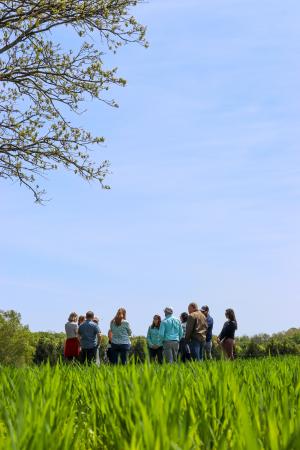
The RCPP is a unique Farm Bill program in that it leverages the capabilities and resources of federal, regional and local partnerships to target assistance where it is most needed. The partnership collaborates in the assistance of protecting, restoring and enhancing conservation practices on agricultural lands and wetlands through easements. “Partnership is what drives RCPP,” said Ryan Gerlich, Wisconsin NRCS RCPP Coordinator, “it uses the strengths of federal and local partners to get conservation on the ground that benefits the producers, the community and the folks downstream.” Ryan, along with Kristin Westad, Easement Biologist, and Alice Klink, Easement Specialist, are some of the instrumental NRCS staff involved in closing the RCPP easements. “They build relationships that I can trust, and you got to get the right people in place for that. They don't distance themselves when they're working with the farmer because us farmers like to work with people we trust,” said David Lettow on working with the partnership, which also included NRCS District Conservationist, Michael Patin, who helped develop and implement a Conservation Plan to reduce water runoff and improve soil health and wildlife habitat.
Other members of this Milwaukee River Watershed partnership reflected on the effort involved with closing the four easements through the RCPP program while touring the Lettow farm together. “The woodlands, the creek, and this active farmland, that's really what Working Soils® [the MMSD farmland easement program] is about. Protecting the natural resources and the farmland all in one property,” said David Grusznski, Milwaukee Program Director with The Conservation Fund. MMSD Senior Project Planner, Kristin Schultheis, added “this has really been a great partnership. It was a really difficult process at times, [but] we remained patient with one another. I think we all knew we wanted to see this through and so it was worth it. We don't do this very often where we just get together and take a moment to acknowledge what we've accomplished.”
To learn more about the Regional Conservation Partnership Program, visit https://www.nrcs.usda.gov/wi/rcpp.
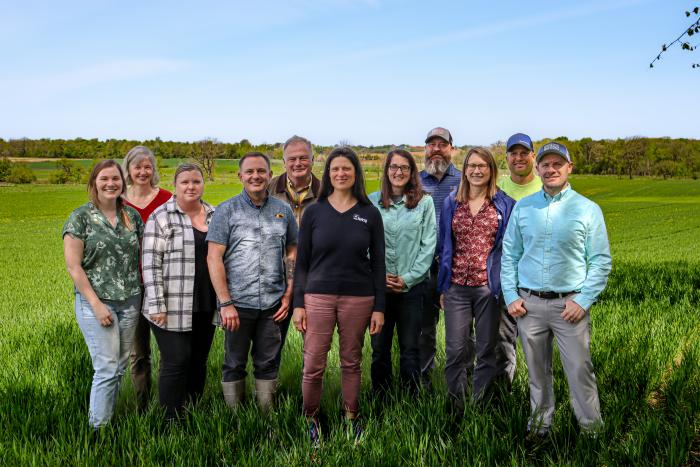
#
Helping People Help the Land
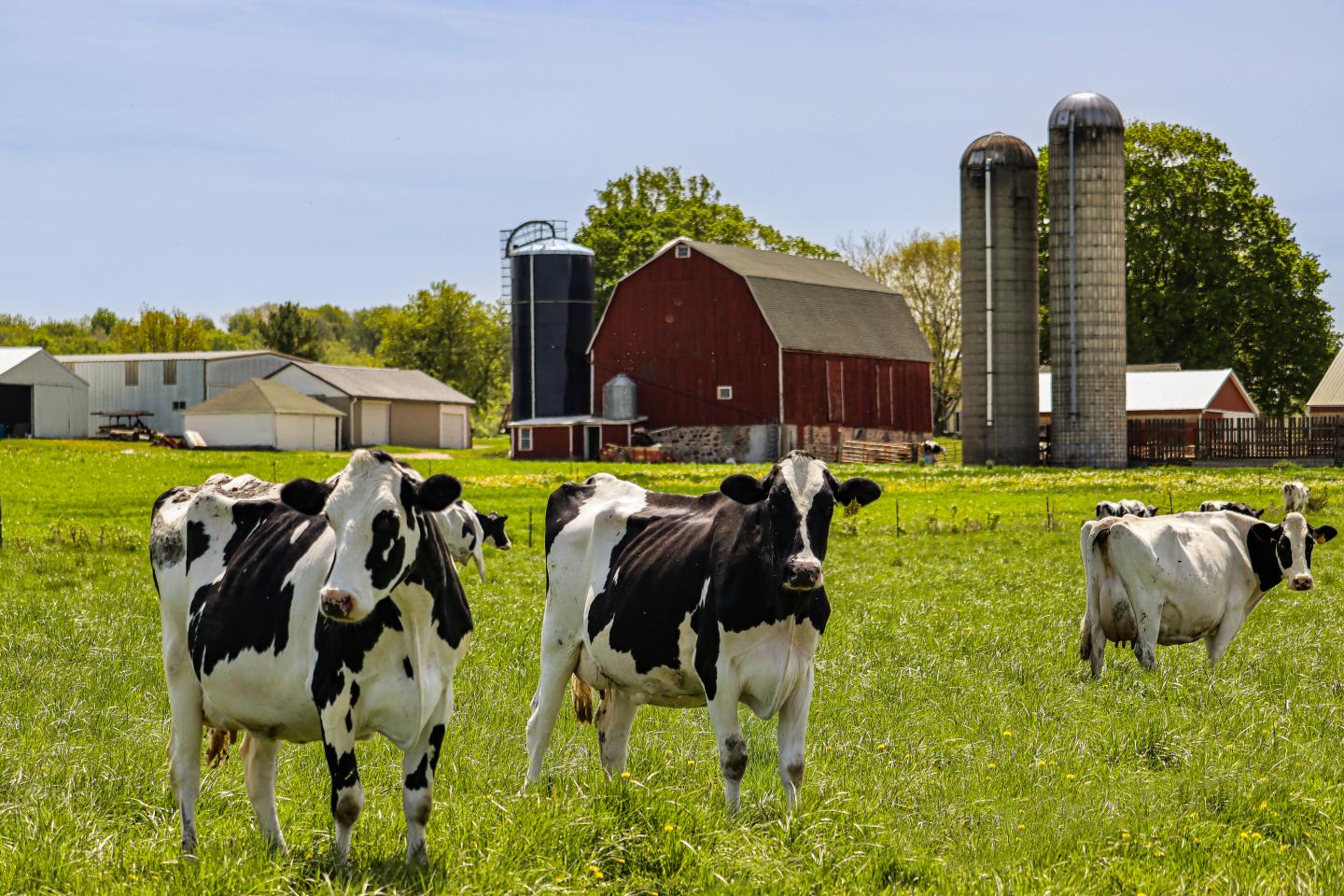
View more photos of this event on the official Wisconsin NRCS Flickr account.
Additional Information
To learn more about the Regional Conservation Partnership Program, visit our Wisconsin RCPP webpage.
Regional Conservation Partnership Program - Wisconsin
The Regional Conservation Partnership Program (RCPP) is a partner-driven approach to conservation that funds solutions to natural resource challenges on agricultural land.
Learn More

